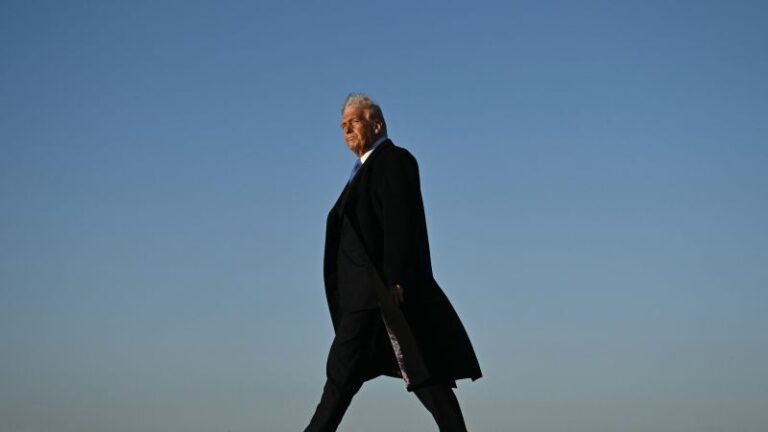President Donald Trump is escalating his multi-front assault on what supporters see as an elite establishment, using raw presidential power to bend the government, law, media, public health, foreign policy, education and even the arts to his will.
Trump left no doubt in last year’s campaign that he’d use executive authority to seek retribution against his political enemies. But his attempt to transform America’s politics and culture is far broader than a personal revenge trip.
He’s targeting Ivy League universities; using executive authority against top law firms; eviscerating the bureaucracy; rejecting 80 years of elite orthodoxy about American global leadership; and using tariffs to shatter the global trading system that Make America Great Again proponents regard as the self-enriching treachery of global elites.
In one recent example, the White House forced Columbia University to restrict demonstrations, review its Middle East curriculum, ban masks in protests and stiffen law enforcement. Other top educational institutions now feel vulnerable to possible attempts to impose Trump dogma. The strategy may widen the political opening created by conservative pressure on top colleges over anti-Israel protests amid the war in Gaza.
And late last week, Trump directed Attorney General Pam Bondi to seek sanctions against lawyers and law firms who engage in what he regards as “frivolous, unreasonable, and vexatious litigation against the United States.” The memo was released after he canceled punishment against one top white-collar firm after the White House said it agreed to do $40 million in pro bono legal services to support administration initiatives and promised to drop diversity, equity and inclusion. The firm — Paul, Weiss, Rifkind, Wharton & Garrison — disputes the administration’s characterization of the agreement, but the deal caused a backlash among many Washington lawyers.
Read Collinson’s full analysis here.


